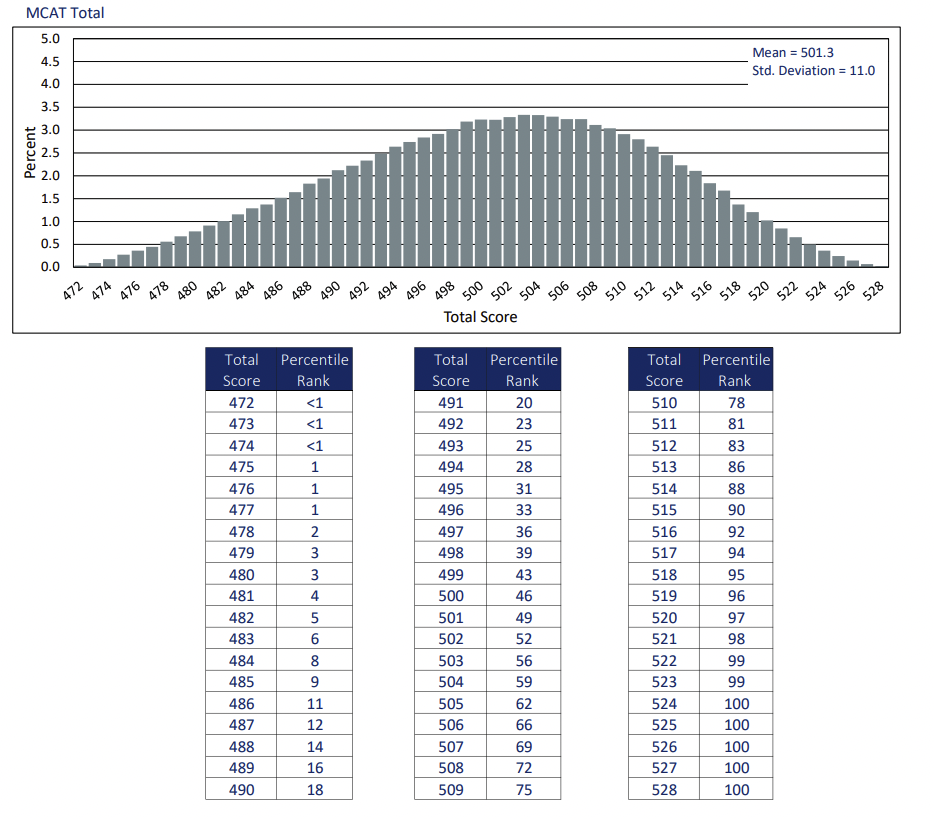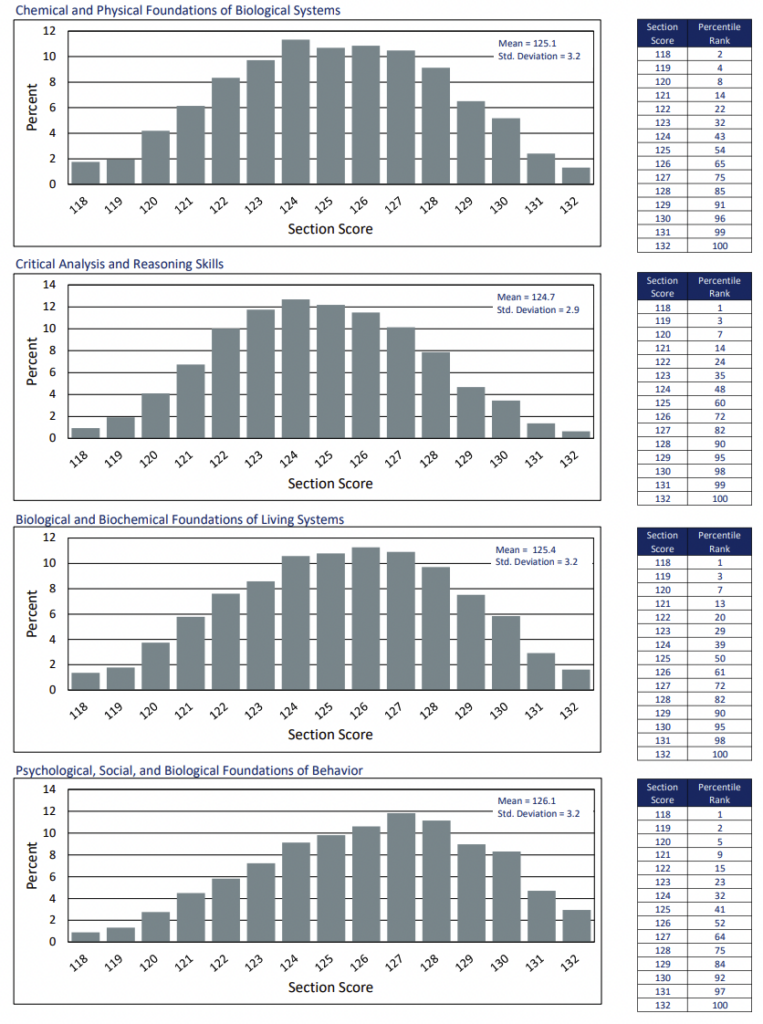When considering graduate-level education, the choice of standardized tests depends largely on the specific field of study.
The Law School Admission Test (LSAT) is a necessity for law school admissions, the Graduate Management Admission Test (GMAT) is often required for business schools, the Graduate Record Examinations (GRE) is widely accepted for various graduate programs, and the Medical College Admission Test (MCAT) is essential for prospective medical students.
Here’s how they differ in format, difficulty, time commitment, and the skills they assess.
LSAT: The Lawyer’s Aptitude Assessment
Format
The LSAT is a half-day, standardized test consisting of multiple-choice questions and a writing sample.
It includes sections on logical reasoning, analytical reasoning, and reading comprehension.
Difficulty
It is designed to measure skills that are considered essential for success in law school, such as critical reading, analytical thinking, and logical reasoning.
Time
The exam takes approximately 3 hours and 30 minutes, not including breaks.
Skills and Abilities Tested
The LSAT specifically tests candidates on argumentative strategies, the ability to discern and apply rules or principles, and the capacity to read complex texts with accuracy and insight.
Percentiles
| Score | 2019-2020 | 2018-2019 |
|---|---|---|
| 180 | 99.9 | 99.9 |
| 179 | 99.9 | 99.9 |
| 178 | 99.9 | 99.9 |
| 177 | 99.8 | 99.8 |
| 176 | 99.6 | 99.8 |
| 175 | 99.5 | 99.6 |
| 174 | 99.2 | 99.4 |
| 173 | 98.8 | 99.1 |
| 172 | 98.4 | 98.7 |
| 171 | 97.8 | 98.2 |
| 170 | 97.1 | 97.6 |
| 169 | 95.9 | 96.8 |
| 168 | 94.8 | 95.4 |
| 167 | 93.3 | 94.5 |
| 166 | 91.5 | 92.9 |
| 165 | 89.8 | 91.5 |
| 164 | 87.4 | 89.5 |
| 163 | 85 | 87.2 |
| 162 | 82.7 | 84.9 |
| 161 | 80.1 | 82.3 |
| 160 | 77 | 79.2 |
| 159 | 73.6 | 76.1 |
| 158 | 70.4 | 73.2 |
| 157 | 66.5 | 69.6 |
| 156 | 62.9 | 66.3 |
| 155 | 59.2 | 62.3 |
| 154 | 55.5 | 58.4 |
| 153 | 51.7 | 54.4 |
| 152 | 47.7 | 50.8 |
| 151 | 44 | 47 |
| 150 | 39.7 | 43.4 |
| 149 | 36.3 | 39.4 |
| 148 | 32.8 | 36.2 |
| 147 | 29.1 | 32.4 |
| 146 | 26 | 29 |
| 145 | 22.9 | 25.4 |
| 144 | 20 | 22.8 |
| 143 | 17.4 | 20 |
| 142 | 14.8 | 17.1 |
| 141 | 12.6 | 15 |
| 140 | 10.8 | 12.8 |
| 139 | 9 | 11 |
| 138 | 7.5 | 9.2 |
| 137 | 6.4 | 7.8 |
| 136 | 4.9 | 6.7 |
| 135 | 4.2 | 5.2 |
| 134 | 3.6 | 4.5 |
| 133 | 3 | 3.8 |
| 132 | 2.4 | 3.1 |
| 131 | 2 | 2.5 |
| 130 | 1.6 | 2 |
| 129 | 1.4 | 1.6 |
| 128 | 1.1 | 1.3 |
| 127 | 0.9 | 1.2 |
| 126 | 0.8 | 1 |
| 125 | 0.7 | 0.8 |
| 124 | 0.5 | 0.6 |
| 123 | 0.5 | 0.5 |
| 122 | 0.4 | 0.4 |
| 121 | 0.3 | 0.3 |
| 120 | 0 | 0 |
GMAT: The Business School Benchmark
Format
The GMAT is a computer-adaptive test that assesses analytical writing, integrated reasoning, quantitative, and verbal skills.
Difficulty
The GMAT is known for its challenging quantitative section and the complexity of its integrated reasoning section.
Time
Test-takers are allocated 3 hours and 7 minutes of actual exam time, though preparation and breaks extend this period.
Skills and Abilities Tested
It is designed to gauge one’s ability to analyze data and draw conclusions, think critically, and communicate effectively, which are vital skills in business and management.
Percentiles
Total GMAT score and percentile
| GMAT score | GMAT percentile |
| 800 | 99% |
| 790 | 99% |
| 780 | 99% |
| 770 | 99% |
| 760 | 99% |
| 750 | 98% |
| 740 | 97% |
| 730 | 96% |
| 720 | 94% |
| 710 | 90% |
| 700 | 87% |
| 690 | 84% |
| 680 | 80% |
| 670 | 78% |
| 660 | 74% |
| 650 | 70% |
| 640 | 64% |
| 630 | 62% |
| 620 | 58% |
| 610 | 54% |
| 600 | 50% |
GMAT Quant and Verbal scores and percentiles
| GMAT Scaled Score | Quant Percentile Score | Verbal Percentile Score |
| 51 | 97% | 99% |
| 50 | 87% | 99% |
| 49 | 74% | 99% |
| 48 | 67% | 99% |
| 47 | 59% | 99% |
| 46 | 56% | 99% |
| 45 | 53% | 99% |
| 44 | 47% | 98% |
| 43 | 44% | 98% |
| 42 | 39% | 96% |
| 41 | 37% | 94% |
| 40 | 35% | 90% |
| 39 | 31% | 88% |
| 38 | 29% | 84% |
| 37 | 28% | 82% |
| 36 | 25% | 80% |
| 35 | 22% | 75% |
| 34 | 21% | 70% |
| 33 | 20% | 68% |
| 32 | 17% | 65% |
| 31 | 15% | 60% |
| 30 | 15% | 58% |
| 29 | 13% | 55% |
| 28 | 12% | 50% |
| 27 | 10% | 45% |
| 26 | 10% | 42% |
| 25 | 8% | 38% |
| 24 | 8% | 35% |
| 23 | 7% | 31% |
| 22 | 6% | 29% |
| 21 | 5% | 25% |
| 20 | 5% | 22% |
| 19 | 4% | 18% |
| 18 | 4% | 17% |
| 17 | 3% | 14% |
| 16 | 3% | 11% |
| 15 | 3% | 9% |
| 14 | 3% | 8% |
| 13 | 2% | 6% |
| 12 | 2% | 4% |
| 11 | 1% | 3% |
| 10 | 1% | 2% |
| 9 | 1% | 2% |
| 8 | 1% | 1% |
| 7 | 1% | 1% |
| 6 | 0% | 0% |
GMAT Integrated Reasoning score and percentile
| Integrated Reasoning score | Percentile score |
| 8 | 90% |
| 7 | 79% |
| 6 | 64% |
| 5 | 48% |
| 4 | 31% |
| 3 | 18% |
| 2 | 8% |
| 1 | 0% |
GMAT Analytical Writing Assessment score and percentile
| Analytical Writing Assessment score | Percentile score |
| 6 | 88% |
| 5.5 | 81% |
| 5 | 57% |
| 4.5 | 47% |
| 4 | 18% |
| 3.5 | 12% |
| 3 | 4% |
| 2.5 | 3% |
| 0.5 to 2 | 1% |
GRE: The Versatile Graduate Assessment
Format
The GRE is offered in both computer-based and paper-based formats and includes verbal reasoning, quantitative reasoning, and analytical writing sections.
Difficulty
The GRE is considered less challenging than the GMAT in the quantitative section but has a broader vocabulary requirement in the verbal section.
Time
The computer-based GRE takes about 3 hours and 45 minutes, while the paper-based version can take up to 3 hours and 30 minutes.
Skills and Abilities Tested
The GRE measures a wide range of skills, including abstract thinking, quantitative analysis, and verbal reasoning, reflecting the variety of graduate programs it serves.
Percentiles
Percentile Data Verbal and Quantitative Reasoning
| Score | Verbal Reasoning Percentile | Quantitative Reasoning Percentile |
| 170 | 99 | 94 |
| 169 | 99 | 91 |
| 168 | 98 | 87 |
| 167 | 97 | 83 |
| 166 | 96 | 80 |
| 165 | 95 | 76 |
| 164 | 94 | 73 |
| 163 | 92 | 70 |
| 162 | 89 | 68 |
| 161 | 87 | 65 |
| 160 | 84 | 61 |
| 159 | 81 | 58 |
| 158 | 77 | 55 |
| 157 | 73 | 52 |
| 156 | 70 | 49 |
| 155 | 65 | 46 |
| 154 | 60 | 42 |
| 153 | 56 | 39 |
| 152 | 50 | 36 |
| 151 | 46 | 33 |
| 150 | 41 | 30 |
| 149 | 36 | 27 |
| 148 | 32 | 24 |
| 147 | 29 | 21 |
| 146 | 25 | 18 |
| 145 | 22 | 15 |
| 144 | 19 | 13 |
| 143 | 17 | 11 |
| 142 | 15 | 9 |
| 141 | 12 | 7 |
| 140 | 10 | 6 |
| 139 | 9 | 5 |
| 138 | 7 | 4 |
| 137 | 6 | 3 |
| 136 | 5 | 2 |
| 135 | 4 | 1 |
| 134 | 3 | 1 |
| 133 | 2 | 1 |
| 132 | 2 | |
| 131 | 1 |
Percentile Data Analytical Writing
| Score | Analytical Writing Percentile |
| 6.0 | 99 |
| 5.5 | 98 |
| 5.0 | 91 |
| 4.5 | 81 |
| 4.0 | 56 |
| 3.5 | 38 |
| 3.0 | 15 |
| 2.5 | 7 |
| 2.0 | 2 |
| 1.5 | 1 |
MCAT: The Medical Career Gateway
Format
The MCAT is a computer-based test with four sections:
- Biological and Biochemical Foundations of Living Systems
- Chemical and Physical Foundations of Biological Systems
- Psychological, Social, and Biological Foundations of Behavior; and
- Critical Analysis and Reasoning Skills
Difficulty
This test is known for its rigorous assessment of science knowledge and its application, as well as critical thinking.
Time
The MCAT takes 7 hours and 30 minutes to complete, making it the longest of the four exams.
Skills and Abilities Tested
The MCAT evaluates a candidate’s knowledge of natural, behavioral, and social science concepts and principles prerequisite to the study of medicine, as well as problem-solving and critical thinking skills.
Percentiles


FAQs – LSAT vs. GMAT vs. GRE vs. MCAT
What are the main differences between the LSAT, GMAT, GRE, and MCAT?
The main differences between these exams lie in their structure, content, and purpose.
The LSAT is designed specifically for law school admissions and focuses on reading comprehension, logical and analytical reasoning.
The GMAT is tailored for business school candidates, emphasizing quantitative skills, integrated reasoning, and verbal skills.
The GRE is a more general test for various graduate programs, assessing verbal reasoning, quantitative skills, and analytical writing.
The MCAT is specialized for medical school admissions, testing knowledge of natural sciences along with critical analysis and reasoning skills.
Which graduate programs require the LSAT, GMAT, GRE, and MCAT respectively?
The LSAT is required for law school admission, the GMAT is predominantly required for business schools, the GRE is accepted by a wide range of graduate programs including but not limited to masters and doctoral programs in the arts and sciences, and the MCAT is essential for admission to medical schools.
How long is each test: LSAT, GMAT, GRE, and MCAT?
The LSAT takes approximately 3 hours and 30 minutes to complete.
The GMAT is 3 hours and 7 minutes long, not including breaks.
The GRE takes about 3 hours and 45 minutes for the computer-based test, while the paper-based version can take up to 3 hours and 30 minutes.
The MCAT is the longest, at 7 hours and 30 minutes.
What types of skills are assessed by the LSAT, GMAT, GRE, and MCAT?
The LSAT assesses critical reading, logical reasoning, and analytical thinking.
The GMAT measures analytical writing, problem-solving, data analysis, and reasoning skills.
The GRE evaluates verbal reasoning, quantitative reasoning, critical thinking, and analytical writing skills.
The MCAT tests candidates on natural, behavioral, and social science knowledge, critical analysis, and reasoning.
Can the GRE be taken instead of the GMAT for business school admission?
Yes, many business schools now accept the GRE in place of the GMAT.
However, it’s important to check with the specific institution as requirements can vary.
Are calculators allowed on the LSAT, GMAT, GRE, or MCAT?
Calculators are not allowed on the LSAT.
For the GMAT, a calculator is provided for the integrated reasoning section only.
The GRE allows a calculator for the quantitative sections. On the MCAT, calculators are not permitted.
How often can you take the LSAT, GMAT, GRE, and MCAT?
The LSAT can be taken up to three times in a single testing year.
The GMAT can be taken up to five times a year, with a lifetime limit of eight attempts.
The GRE can be taken once every 21 days, up to five times within any continuous rolling 12-month period.
The MCAT can be taken up to three times per year, with a lifetime limit of seven times.
What is the cost to take the LSAT, GMAT, GRE, and MCAT?
As of my last update, the cost for the LSAT is about $200, the GMAT is approximately $250, the GRE is around $205, and the MCAT costs about $320.
These fees can vary by location and are subject to change, so it’s advisable to check the official websites for the most current information.
How should I prepare for the LSAT, GMAT, GRE, and MCAT?
Preparation should include familiarizing yourself with the test format and types of questions, practicing with sample tests, and studying content areas where you need improvement.
It’s also beneficial to develop test-taking strategies and, if possible, take a prep course or work with a tutor.
What is considered a good score on the LSAT, GMAT, GRE, and MCAT?
A good score is typically one that falls within the average range of scores accepted by your target schools.
For the LSAT, scores above 160 are generally considered good.
On the GMAT, a score of 700 or above is competitive.
For the GRE, scores around 150-160 in each section are seen as strong.
And for the MCAT, a score above 510 is often competitive.
How do law, business, graduate, and medical schools use the scores from LSAT, GMAT, GRE, and MCAT in their admissions process?
Schools use these scores to assess an applicant’s readiness for the rigors of their program and to compare the academic potential of candidates.
The scores are often used in conjunction with undergraduate GPA, letters of recommendation, and other application materials to make admission decisions.
Is work experience required before taking the GMAT, GRE, LSAT, or MCAT?
Work experience is not a requirement for taking any of these exams.
However, some MBA programs that require the GMAT may expect professional experience as part of the admissions process.
Are there any sections on the LSAT, GMAT, GRE, and MCAT that are not scored?
Yes, each of these tests includes unscored sections.
The LSAT has an unscored experimental section, the GMAT and GRE include unscored research sections, and the MCAT may contain unscored field-test questions embedded in the scored sections.
What accommodations are available for test-takers with disabilities for the LSAT, GMAT, GRE, and MCAT?
Accommodations might include extended testing time, additional breaks, or modified test materials.
Test-takers must apply for accommodations in advance and provide appropriate documentation to support their requests.
How does the difficulty level compare among the LSAT, GMAT, GRE, and MCAT?
The difficulty of these exams is subjective and can vary based on an individual’s strengths and background.
Generally, the MCAT is considered the most content-heavy, the GMAT and GRE are known for their challenging quantitative sections, and the LSAT is regarded for its rigorous logical reasoning and reading comprehension sections.

Conclusion
Each of these tests plays a pivotal role in the respective fields they serve.
They are tailored to assess the abilities and skills necessary for specific graduate programs, determining the readiness of applicants to undertake advanced study and research in their chosen field.
Related
- Types of Assessments in Education
- Types of Degrees
- Types of Academic Degrees
- Types of Engineering Degrees
- Types of Business Degrees
- How Much Education Do I Need?


